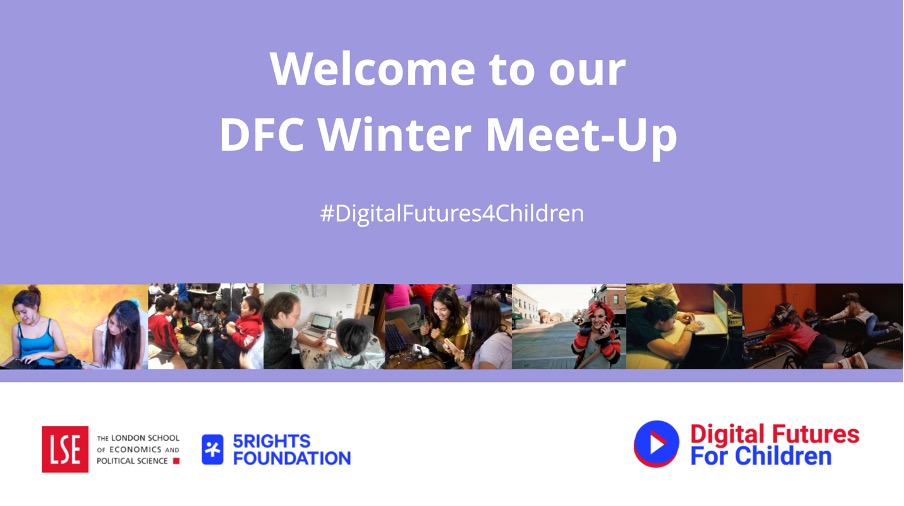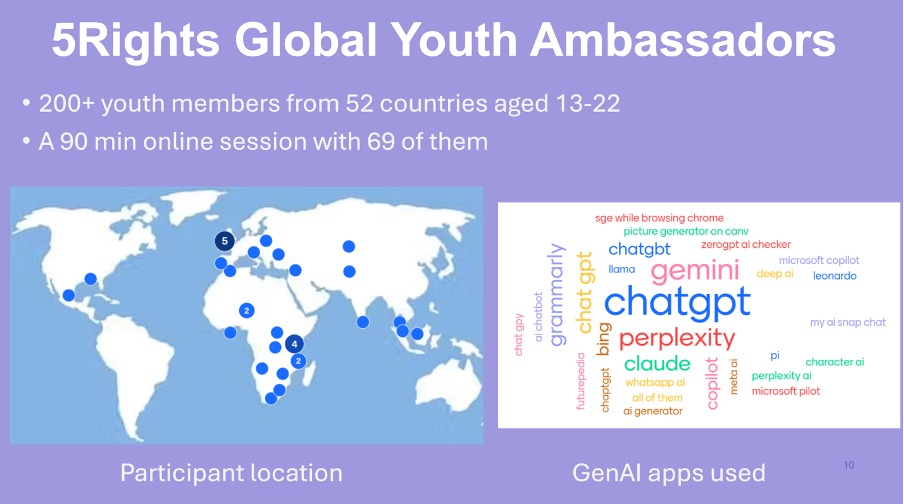 Diverse participants from around the world shared their perspectives at the DFC winter meetup. Discussion points included how organisations worked with children, what social media means for children and priorities for practitioners, researchers and policymakers.
Diverse participants from around the world shared their perspectives at the DFC winter meetup. Discussion points included how organisations worked with children, what social media means for children and priorities for practitioners, researchers and policymakers.
1) Organisations are collaborating with children
The meetup highlighted that some charitable, policy and research organisations are leading by example and consulting and working with children. 5Rights Global Youth Ambassadors, for example, are actively connecting children across the globe with policymakers and front-line researchers. Several organisations explained how they promote co-design methodologies, allowing children to guide and change the shape of their respective outcomes. However, it was agreed that such efforts are far from mainstream and greater efforts are needed.

2) Social media bans
When children are consulted, the meetup agreed that children need to express themselves and communicate, and they harness social media to do this.
Therefore, the decisions behind a social media ‘ban’ are not supported by children’s perspectives. It was also highlighted that the impacts of bans and harsh policies are often cumulative and, therefore, hard to predict over time.
3) Global South perspectives
“Global is an easy word to say.”
There was a lively discussion about how children who live in remote locations in the Global South must be considered in academic and policy discussions, as impacts and consequences of digital developments can be more severe. As one meeting participant pointed out:
“We’re 20 kilometres from the nearest town, and [the children] don’t get much opportunity to travel or see beyond the village or the district. If phones or access to social media, for example, were to be taken away, they would be cut off from any broadening of their worlds.”
Moreover, there are perspectives in the Global South that aren’t often collected or considered. Three from the meetup are summarised here:
- Digitisation is having a huge impact on the global South, as children often have better digital skills in comparison to older relatives.
- We need to design our perspectives around different cultures, languages and contexts if we are to fully acknowledge that an internet for everyone is not a given.
- Furthermore, although a child rights approach is welcomed in academic circles, it is seen as a very liberal approach that does not fit with some cultures or contexts.
4) What’s next?
Participants noted some key discussion points for future research, including:
- Take a pragmatic approach to communication, particularly across domains. For example, between academia and policy, participants noted a gap between theory and practice. Academia can take some responsibility for bridging these gaps with clear, simple talking points.
- Research with children should take a relationship-first stance. To achieve this, participation from children needs to be more consistent – not tokenistic.
- Ultimately, children need scaffolding, whole-community digital up-skilling and safer platforms. This should be our constant aim when talking about children’s rights in the digital environment.
The DFC thanks the team and the meeting participants, who contributed discussion points from across the globe. We look forward to further discussions in 2025.
Report author: Marisa Lyons Longworth